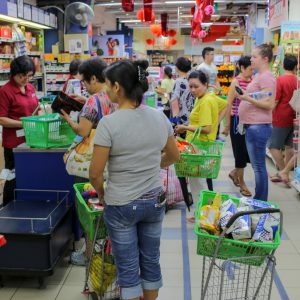A case for making plastic bags in Singapore ugly – or even embarrassing
August 17, 2020

Professor Sumit Agarwal (NUS Business School) proposes alternative solutions to reduce systemic environmental pollution in ‘A case for making plastic bags in Singapore ugly – or even embarrassing’ (Channel News Asia, 2020).
Singapore uses close to 2.5 billion plastic bags a year, equivalent to around 450 bags per person, and without intervention to reduce non-recyclable items such as plastic bags, Prof Agarwal indicates that Semaku, Singapore’s only landfill, will be completely exhausted by 2035.
International examples of plastic bag reduction are highlighted. Ranging from a complete ban on single use plastic bags in Jakarta and New York, with the latter shifting to US$0.05 fee for paper bag replacements, to a more moderated approach in Japan and the UK where single use plastic bags incur a mandatory charge.
However, Singapore’s reliance on convenience in places such as hawker stalls, wet markets and food delivery firms and the relatively low cost of entry, such as the S$0.20 plastic bag charge that was trialled at specific NTUC FairPrice supermarkets last year, are understood by environmental campaigners as not being sufficient enough to change habits. Consequently, Prof Agarwal suggests the social shaming method of printing environmental slogans or images of litter and damaged animal habitats onto the single use plastic bags themselves, in order to raise awareness and shift Singaporean consumer behaviour.
Similar to the shock health branding on cigarette packaging in certain countries, the negative marketing of single use plastic bags to carry the social stigma of pollution in conjunction with other ideas, such as placing them at a distance from the checkout counter or retraining staff to not offer bags unless specifically requested, are the alternative approaches proposed to combating waste and reducing pollution.
Read the full article here.
